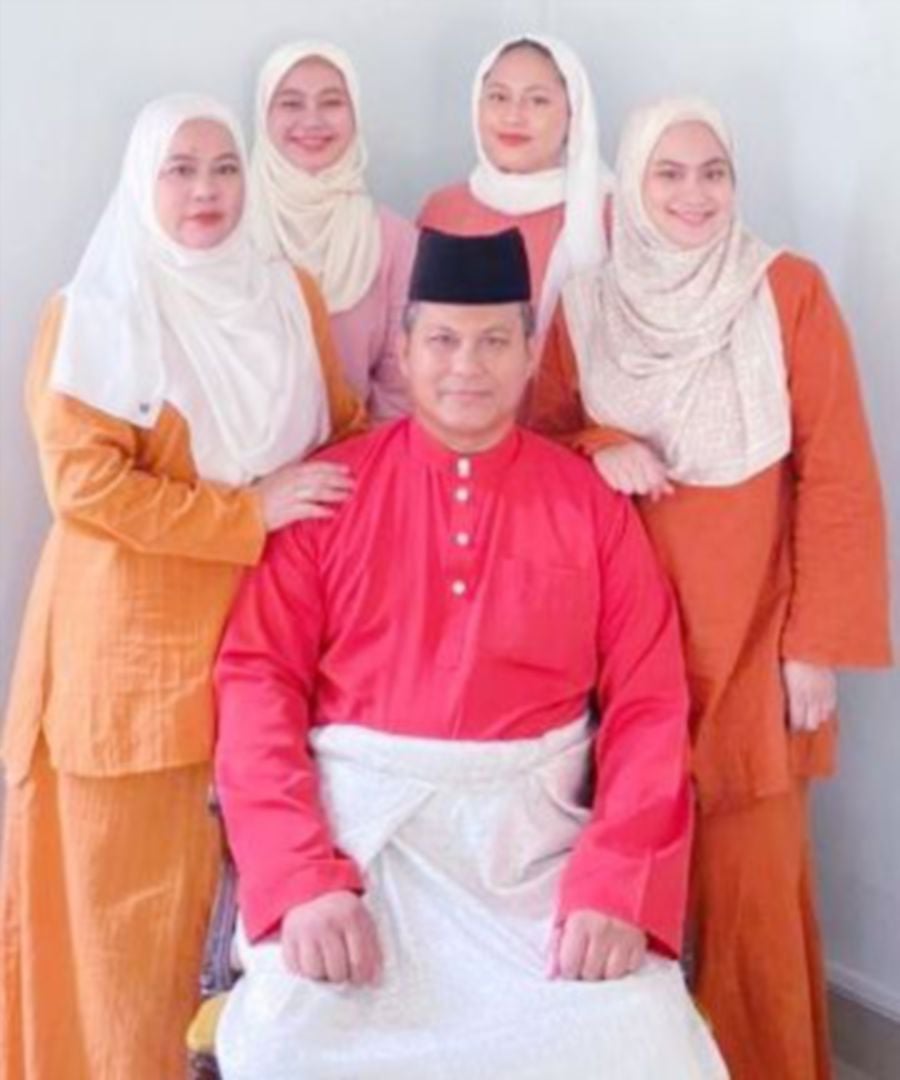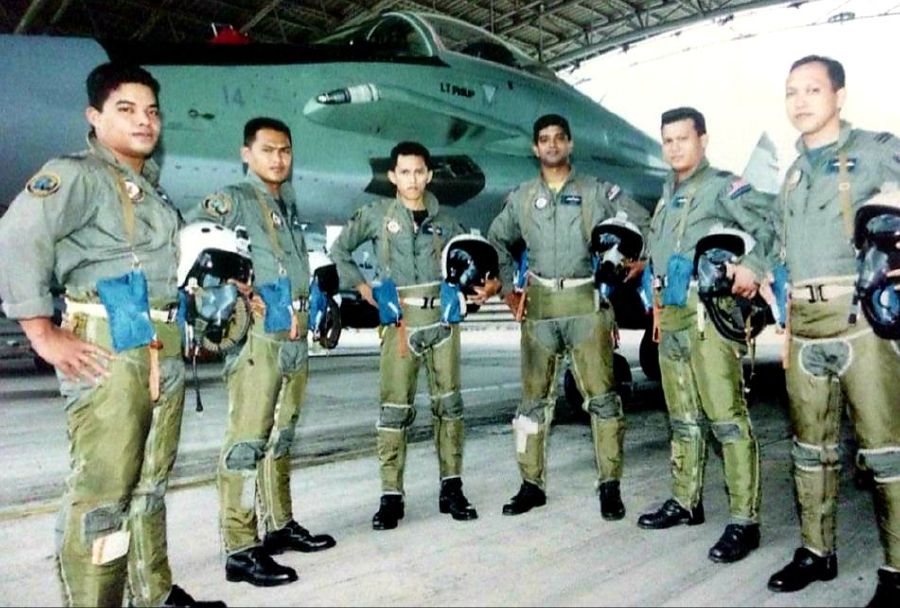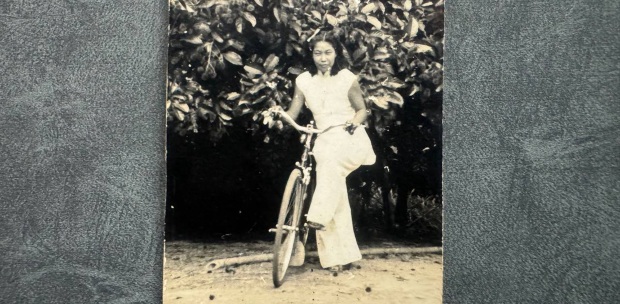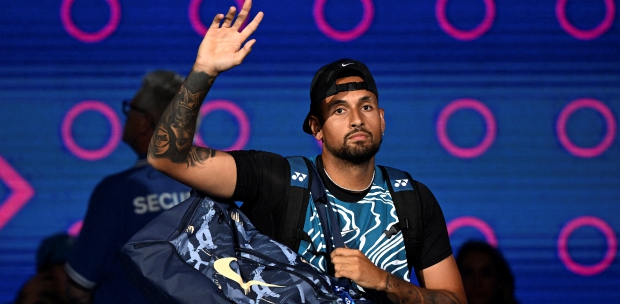KUALA LUMPUR: The late Lieutenant-Colonel (Rtd) Fajim Juffa Mustaffa Kamal, who perished in a plane crash in Ipoh last night, was described by his contemporaries as "a fine officer and a gentleman".
Fajim, 52, a retired Royal Malaysian Air Force (RMAF) fighter pilot, died when the two-seater light aircraft he was flying crashed into a ditch while attempting to land on Jalan Raja Dr Nazrin Shah near Sungai Pinji, Medan Gopeng in Ipoh.
Former RMAF chief General (Rtd) Tan Sri Ackbal Abdul Samad told the New Straits Times that Fajim, who went by the fighter pilot call-sign "Pejump", was a pleasant and personable character.
"He was always jovial and never seemed to share his sorrows openly. He was a consummate team player and had the respect of squadron executives, seniors and fellow comrades.
"He was an avid aviator at heart and went all the way to fulfil his dream to excel in the profession. He will be greatly missed," said Ackbal, who bore the fighter call-sign "Krueger" and retired last March.
Ackbal was one of the RMAF's pioneer batch of pilots to fly the Russian-made MiG-29N Fulcrum in the early 1990s, before others like Fajim followed suit.
According to some of his former MiG-29N "Smokey Bandits" aerobatic display team squadron mates, Fajim earned the call-sign "Pejump" (for pejam mata) for apparently "catching a few winks" during class lectures in his early flying days.
Nevertheless, Fajim was as sharp as a "top gun" when it came to flying jet fighters, they said.
Former RMAF deputy chief Lieutenant-General (Rtd) Datuk Indera Mohammad Salleh Osman recalled Fajim as a reliable staff member while serving at the Armed Forces Headquarters' Policy and Defence Planning division.
"Even from our squadron days, he was friendly, approachable and helpful. He was very resourceful and willing to explore new ideas of doing things," he said.
Colonel Sebastian "Arrow" William, who is now the defence adviser in Moscow, said he knew Fajim from the first day the former reported to the RMAF Kuantan base to undergo the "Basic Fighter Conversion".
"He was my senior but was one of the friendliest faces I ever knew. He was always ready to help juniors who were struggling to cope.
"Fajim was always the one to crack jokes to cheer us up," said Sebastian, who had once commanded the MiG-29N 17th Squadron and was a "Smokey Bandits" member.
Sebastian and Fajim were posted to RMAF Butterworth base together.
"We used to make our way to Penang island in the evenings to enjoy the sights and sounds, and Fajim was always the designated driver as he never drank any alcohol," he said.
He added that in later years, when he reported to the MiG-29N squadron in Kuantan, Fajim was already an operational pilot.
"I could always count on him to give me some pointers on how to improve my flying.
"Fajim was the official public relations officer for the 'Smokey Bandits' team. He was always busy running around arranging meet-and-greet sessions for the team, and he always had excellent ideas on how to use the team to promote the RMAF among the young ones," said Sebastian.
He recalled that Fajim once attempted to be the aerobatic team's display commentator but failed miserably due to his tendency to use the phrase "Oh Yeah" a little bit too often.
"His commentary was comical and always made us laugh during debriefs, taking away the fatigue and stress of the day's display flight," Sebastian said.
He said many viewed Fajim as a big brother figure.
"I don't think anyone will ever be able to recall one bad thing to say about him."
He said Fajim, although the air force remained his life and love, left RMAF in 2018 to pursue a career in civil aviation as he wanted to be able to provide the best tertiary education for his three daughters.
Armed Forces chief General Tan Sri Affendi "Apai" Buang and RMAF chief Tan Sri Mohd Asghar Khan "Gunjiz" Goriman Khan – both fighter pilots themselves – also expressed their condolences to Fajim's family.

The Civil Aviation Authority of Malaysia (CAAM) said the BATS Aviation Sdn Bhd two-seat Piper 28-161 light aircraft crashed after taking off at 8pm from the Sultan Azlan Shah Airport in Ipoh.
The Ipoh air traffic control tower received a "May Day" (emergency) call from the pilot at 8.07pm.
The NST learnt the crash was believed to be from an engine malfunction.
BATS chief flight instructor Captain Muhammad Din Fikri Zainal Abidin, 62, who was also in the aircraft, suffered several fractures to the arms and pelvis.
It is understood that Din Fikri regained consciousness while recuperating at the Ipoh Hospital.
Aviators told the NST that he had also served the RMAF for 14 years before working for Malaysia Airlines for 26 years.
Fajim hailed from Semenyih, Selangor, while Din Fikri is from Bukit Damansara, Kuala Lumpur.
Fajim had in 1995 served as an air traffic liaison officer with the United Nations Protection Force's (Unprofor) Malaysian Battalion 2 (Malbatt) based at Konjic, Bosnia-Herzegovina during the Balkan war.
In 2003, he was conducting routine training in Pahang when his MiG-29N suffered engine trouble. He safely ejected from the aircraft before it crashed, but suffered injuries as his parachute came down in the jungle.
The tragedy involving Fajim Juffa was the second air disaster for his family.
On Dec 18, 1989, his father, Army Division One staff officer I (operations) Lieutenant-Colonel Mustaffa Kamal Mohd Yusuf, died in a S-61A-4 Nuri helicopter crash near Kampung Kuala Bandang in Sarikei, Sarawak, that claimed the lives of 16 servicemen.






